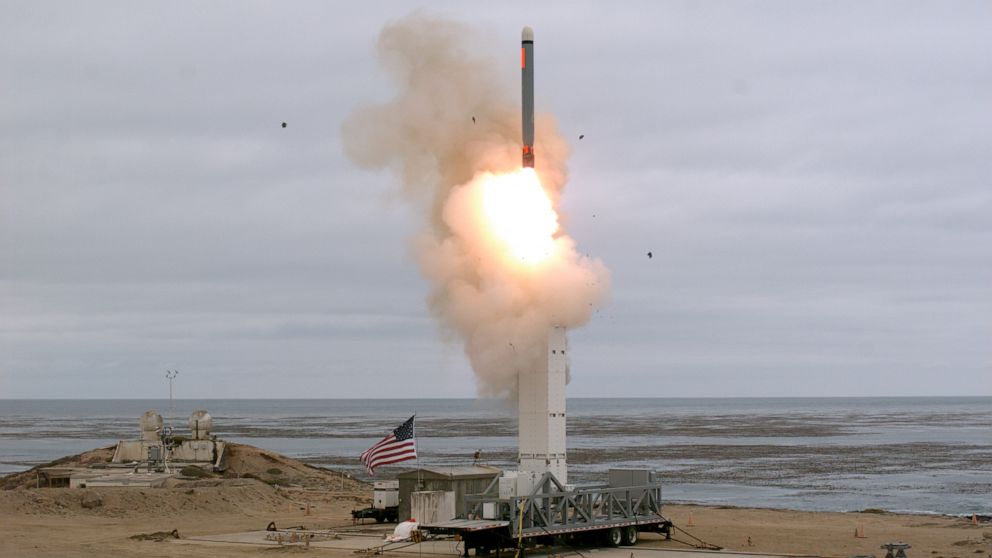Pentagon tests first land-based cruise missile after pulling out of INF Treaty
The US withdrew from the INF on Aug. 2, arguing Russia was non-compliant.
The Pentagon conducted a test of a land-based cruise missile on Sunday, the first such test since the U.S. pulled out of the Intermediate-Range Nuclear Forces (INF) Treaty earlier this month.
"On Sunday, August 18, 2019 at 2:30 p.m. Pacific Daylight Time, the Department of Defense conducted a flight test of a conventionally-configured ground-launched cruise missile at San Nicolas Island, California," the Pentagon said in a statement on Monday. "The test missile exited its ground mobile launcher and accurately impacted its target after more than 500 kilometers of flight."
A U.S. official said the missile was a variant of a Tomahawk Land Attack Missile, designed to carry a conventional, not nuclear, payload.
"Data collected and lessons learned from this test will inform the Department of Defense's development of future intermediate-range capabilities," the Pentagon said.

The U.S. officially withdrew from the INF Treaty on Aug. 2 after the Trump administration declared Russia had long been in material breach of the Cold War arms-control pact. While analysts have warned that the treaty's end could lead to a dangerous new arms race, senior administration officials argued the U.S. had no choice but to terminate a deal that only one side was abiding by.
The Pentagon began research and development efforts focused on mobile, conventional and ground-launched cruise and ballistic missile systems in 2017 that it described as being in the "early stages" due to America's compliance with the INF Treaty.
"Now that we have withdrawn, the Department of Defense will fully pursue the development of these ground-launched conventional missiles as a prudent response to Russia's actions and as part of the Joint Force's broader portfolio of conventional strike options," Defense Secretary Mark Esper said in a statement on Aug. 2.
Esper told reporters earlier this month that those weapons would be based in Asia but said the exact location requires further discussions with allies in the region.




